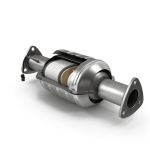
It’s common knowledge that your vehicle requires different fluids to keep it running at its best. But, how do you know which fluids they are? Fluids play a massive role in the day-to-day operation of your engine and other components, meaning they need to be regularly checked to ensure that your vehicle remains reliable for years to come.
Here’s a list of 7 fluids that need to be checked
1. Engine Oil
This is true of all modern vehicles apart from owners of electric-powered vehicles – you can skip down to number two. The engine oil is the main lifeblood of your engine, keeping moving components lubricated and helping to keep temperatures under control.
If your engine runs low on this crucial fluid, substantial internal damage can occur, including complete engine failure. It also requires changing at specific intervals to ensure the oil does not build up with contaminants and other debris that cannot be filtered through the oil filter.
This is especially true of diesel vehicles, as the byproduct of diesel combustion adds soot into the oiling system – this is why diesel oil turns black almost as soon as it is changed. Every vehicle will have a servicing interval set by the manufacturer to let you know when it’s time to have the oil changed.
2. Coolant fluids
As the engine runs, the combustion process and components operating at high speeds create heat – it’s the job of the engine coolant to absorb this heat and dissipate it through the radiator. It works by passing through specially designed water jackets inside the engine block and flowing out to the radiator and back again – this flow is created via an engine-driven water pump.
On electric and hybrid vehicles, this coolant also circulates around the battery packs to remove heat away from sensitive components, utilizing an electric pump to keep the coolant flowing when the engine is off.
Unlike engine oil, coolant has a longer servicing life, often lasting between 50,000km and 100,000km without needing to be changed, but it is recommended to check the level regularly to ensure it does not need topping up. Running an engine without coolant will cause the failure of the head gasket or complete engine failure in a short amount of time.
3. Brake Fluids
Another important fluid in your vehicle is the brake fluid. This is what transmits the force you apply to the brake pedal down to the braking components at each wheel. It is a glycol-based fluid, so it cannot be compressed, which makes it ideal for transferring brake pressure. It is not perfect, however, as brake fluid is known as a hygroscopic fluid, which means it absorbs moisture from the air and surrounding components.
This moisture is compressible, so excessive moisture in the brake fluid can lead to a spongy feeling of the brake pedal and reduced braking performance. Due to this, brake fluid is required to be changed regularly, usually every two years, to remove this moisture and return the braking system to optimal performance.
4. Transmission Fluid
Whether you drive a vehicle with an automatic or manual transmission, the transmission relies on a specially designed fluid to operate correctly. Similar to how the engine relies on engine oil to lubricate and cool components, it’s the job of the transmission fluid to lubricate and cool the moving components inside the transmission. In a manual transmission, the oil provides lubrication for the faces of the gears to prevent wear. In an automatic transmission, the fluid plays a much more crucial role.
As well as providing lubrication, it also acts as a hydraulic fluid, operating certain components that are controlled by the transmission computer. Every vehicle will have a different interval for transmission fluid replacement, some transmissions are even ‘filled-for-life’ although it is beneficial to inspect this fluid periodically to make sure there is no contamination or debris, and replacement will need to be carried out if required.
5. Differential Fluid
This one is for rear-wheel drive or four-wheel drive powered vehicles – they are fitted with differentials that are separate from the transmission itself, so require their own oil to operate correctly. The differential fluid operates in a similar manner to the transmission fluid and engine oil, providing lubrication and cooling to the gears and bearings inside the differential.
This fluid requires replacing at set manufacturer intervals to ensure any debris is removed, as they only hold a small amount of fluid which can become contaminated quite quickly, especially if a limited-slip differential is fitted.
6. Power Steering Fluid
If you’ve ever driven an old car without power steering, you know how laborious it can be. Trying to carry out a 3-point turn or parking in a tight car park can leave you with arms that look like Arnie! Thankfully, manufacturers implemented hydraulic (and now electric) power steering to make maneuvering at any speed simple.
A power steering pump is driven off the engine, which pumps power steering fluid through lines and down to the steering rack, making movement easy. Power steering fluid doesn’t usually have a set replacement interval, but regular checking to make sure the fluid is not discolored will keep the system operating as it should.
7. Windscreen Washer Fluid
Whilst this isn’t a fluid that lubricates or cools vital components, the windscreen washer fluid is still a vitally important fluid in the day-to-day running of your vehicle. Operating your vehicle without clear vision through the front or rear windscreen is not only difficult but also extremely dangerous.
Having windscreen washer fluid in the reservoir at all times, as well as good-condition windscreen wipers will allow you to quickly rinse and clear the screen when necessary. Obviously, there isn’t a set manufacturer’s interval to have this fluid replaced, but checking the reservoir once a week and adding a ‘clear screen’ additive will make sure your windscreen is always clear.
Fuel is the number one fluid your vehicle requires to operate, but these other fluids are deserving of your attention to ensure your vehicle keeps running at its best. If you’re unsure of when the last time some of these fluids were changed, or need to have your vehicle inspected.
running with no fluids video









